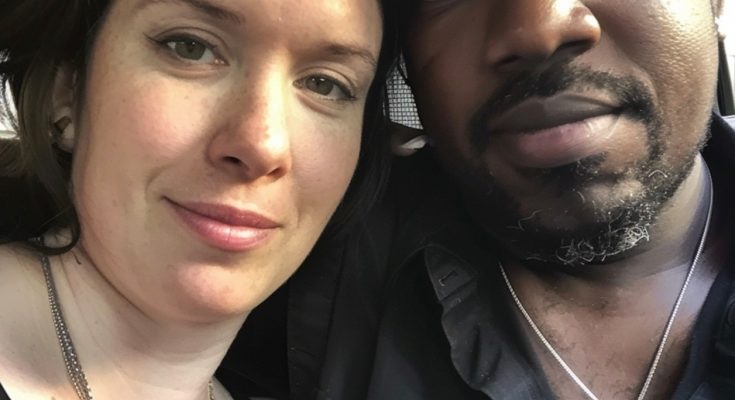For years, my husband Tom consistently resisted my wish to have children, always mysteriously advocating for adoption instead. One tense evening, I accidentally uncovered the truth in a conversation that he never meant for me to hear.
Seated on our front steps, I watched neighborhood children at play, feeling the sting of unfulfilled dreams. Tom and I had been married for six years, and with each passing year, my longing to start our own family intensified.
“Why is he so against having our own children?” I murmured to myself, recalling all the discussions we’d had, which always ended with his firm refusal.
Tom was caring in every other aspect, but whenever the topic of children came up, a shadow fell over us. He had even suggested adoption, which puzzled me further. “Why does he prefer to adopt instead of having our own?” I pondered.
Early in our marriage, Tom and I were inseparable, sharing everything from travel adventures to quiet evenings at home. But as my desire for a child grew, so did Tom’s apparent aversion.
“Do you remember when we used to fantasize about baby names?” I once tried to broach the subject gently. Tom forced a smile and quickly shifted the conversation. Each dismissal chipped away at my heart.
The discussions turned into arguments. My desperation mounted, and Tom’s cryptic push for adoption only deepened my confusion.
“Tom, why can’t we discuss this openly?” I implored one evening.
“It’s just not the right time,” he evaded, looking anywhere but at me.
“Is it me? Do you think I’d be a bad mother?” My voice broke with the weight of my fears.
“No, Sarah, it’s not you,” he assured me softly, yet he offered no further explanation.
Our confrontations escalated until one night it reached a breaking point.
“Why won’t you just be honest with me, Tom?” I demanded.
“You wouldn’t understand!” he retorted, frustration coloring his cheeks.
“Then try me!” I insisted, but he just shook his head and walked away, leaving me alone with my turmoil.
Needing space to clear my head, I left the house, driving around aimlessly while grappling with feelings of rejection and despair. Eventually, I returned, hoping for calm but found the house eerily silent.
As I entered, I heard Tom’s voice from the living room. He was on the phone, sounding distressed. I hesitated at the door, curiosity piqued by his tone.
“Mom, I’m at a loss,” he confessed into the phone. “Sarah is so set on having a baby.”
My heart pounded as I listened, crouched out of sight, desperate to understand his perspective.
“How can I tell her, Mom? That I’m scared our child might inherit my flaws?”
I gasped silently. What was he implying?
“I can’t take that risk,” he continued quietly. “I love her too much to potentially pass on my problems.”
My mind whirled with confusion and hurt. What was he hiding from me? Why did he consider himself flawed?
The call ended, and I remained frozen, processing the fragments of Tom’s admission. I knew I needed to confront him, but the pieces of the puzzle were still jumbled in my mind.
Taking a moment to compose myself, I walked into the living room. Tom looked up, his face etched with worry, but I pretended nothing was amiss.
“Hey,” I greeted, forcing a smile. “I just needed some fresh air.”
“It’s okay,” he replied, visibly relieved. “Want to watch something together?”
“Sure,” I agreed, settling beside him. My thoughts churned as we watched TV, but I knew I needed more information before I could address what I had overheard.
That night, sleep eluded me as Tom’s words echoed in my mind. “Flawed.” What did he mean? The next day, I resolved to seek answers. I searched through old documents in our study, hoping for some clue. Then, I found it: a medical report with “genetic condition” highlighted. My heart sank.
Memories of our past conversations, Tom’s guarded comments about his family’s health, his reluctance to discuss certain topics, and his insistence on adoption—all clicked into place.
The realization of the burden Tom had carried alone overwhelmed me. He had been protecting me, but at the cost of our transparency.
I confronted him later that day in the kitchen, holding the medical report. “Tom, why didn’t you trust me with this?” I asked, tears welling up.
“I didn’t want to scare you,” he admitted, his voice shaking. “I’m terrified. I couldn’t bear the thought of our child possibly suffering.”
“We should’ve faced this together,” I said gently, realizing the depth of his fear. “You shouldn’t have to carry this alone.”
We embraced, a flood of shared relief and newfound understanding passing between us. It was a moment of profound clarity.
“Let’s consider adoption,” I suggested, seeing it through his eyes now. “We can still have a family, just in a different way.”
Tom agreed, his relief palpable. “Thank you, Sarah,” he said, his voice thick with emotion.
As we started our journey toward adoption, our relationship found new strength. We were not just navigating a challenge; we were overcoming it together, our bond deepened by honesty and mutual support.
Looking forward, I was filled with hope. Together, we would build our family on a foundation of love, understanding, and courage. We were ready for whatever lay ahead, united in our commitment to each other and the future we would craft together.



